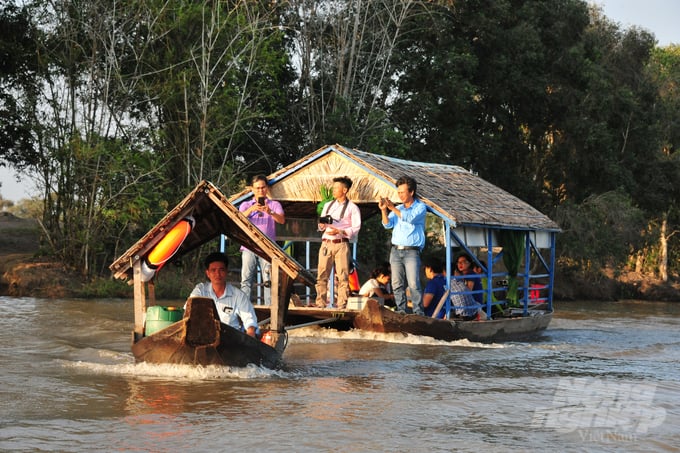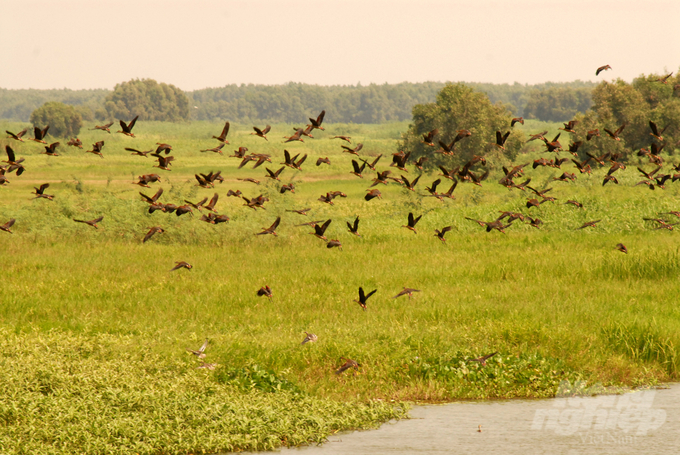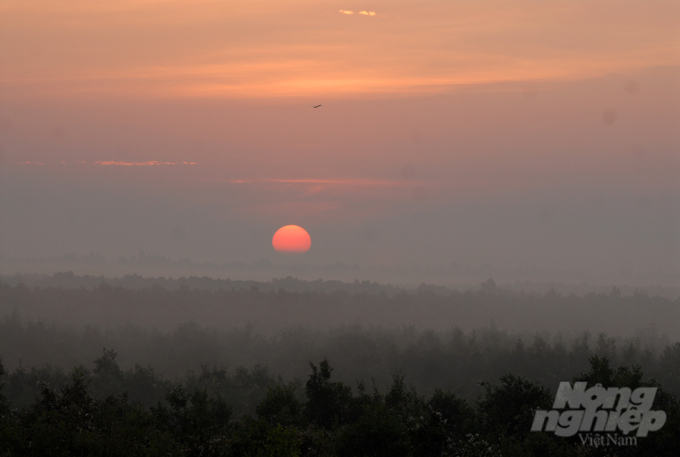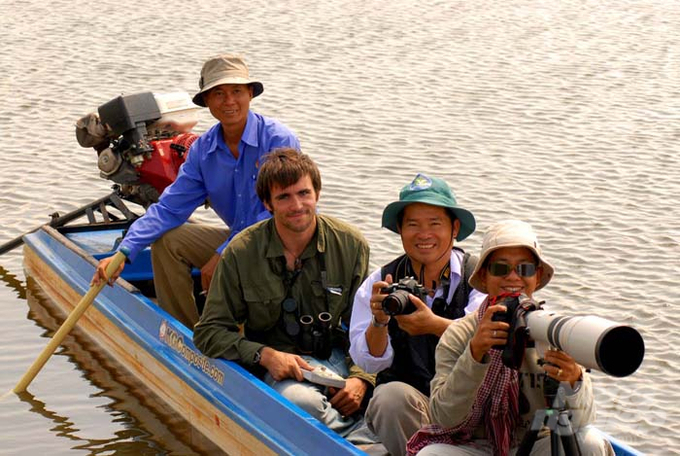June 17, 2025 | 00:37 GMT +7
June 17, 2025 | 00:37 GMT +7
Hotline: 0913.378.918
June 17, 2025 | 00:37 GMT +7
Hotline: 0913.378.918

Coming to Tram Chim National Park, visitors will feel the values of nature, with vast primeval forests and many wild bird species. Photo: Le Hoang Vu.
Tram Chim National Park is located in the core area of Dong Thap Muoi, Tam Nong district, Dong Thap province, with a total area of 7,500 hectares within the boundaries of 5 communes including Tan Cong Sinh, Phu Duc, Phu Hiep, Phu Thanh B, Phu Tho and Tram Chim town, with a population of over 30,000 people in the area.
Tram Chim National Park is a wetland area and is also considered a freshwater storage bag that effectively serves the people of the Mekong Delta in agricultural production. In particular, Tram Chim National Park is also ranked in the important special-use forest system of Vietnam.
Tram Chim National Park is recognized by the Ramsar Convention Secretariat as a Ramsar site in the world. This is Vietnam's 4th Ramsar site and the world's 2,000th Ramsar site. This place also develops a rich vegetation with more than 130 different species. The fauna here stands out with a rich water bird system including 233 species, belonging to 25 genera and 49 families. Of these, 88% were found in the dry season, accounting for 25% of the total number of bird species discovered in Vietnam, and especially the red-crowned crane, the crowdest of the crane family, an invaluable natural asset of Tram Chim National Park in the land of pink lotus.

Tram Chim National Park (Dong Thap) is recognized as the 4th Ramsar site in Vietnam and the 2,000th Ramsar site in the world. Photo: Le Hoang Vu.
This summer vacation season of 2024, visitors come to Tram Chim Ramsar area to watch wild birds at dawn or at sunset, immersing themselves in the Wildbird Hotel Tram Chim area, which is a very impressive and wonderful experience. Visitors will feel the values of nature, with vast primeval forests and wild birds bringing relaxation and comfort to their souls after months of work, study and labor.
Tram Chim tourist area has also just launched the tour "Tram Chim Sunrise 2 days, 1 night" and the "Tram Chim Sunset 2 days, 1 night" tour. Participating in this tour, visitors will visit a display house displaying bird eggs and freshwater fish, experience being a fisherman, catch fish, pick garden vegetables and personally process newly harvested products, and enjoy delicious typical rustic dishes of Tram Chim National Park.
Arriving at Tram Chim, when dawn had just broken out, morning dew still lingered on tree branches and blades of grass. Sitting on the towed boat surfing on the canal, watching the birds flying to search for food on both banks, listening to the pleasant chirping of birds or watching hundreds of teal and mallard ducks, whenever hearing the sound of the towed boat coming closer, they soared high and spread their wings towards the deep green melaleuca forest cluster in the distance.

When the sun slowly drifts down behind the primeval cajuput forest at the end of the horizon, it is also the time when water birds descend to look for food at the end of the day. Photo: Le Hoang Vu.
Located in the middle of the garden, there is an observatory more than 20 meters high. If visitors can climb up to the observatory early in the morning, they can look down at a primeval cajuput forest thousands of hectares wide. Melaleuca stems, large and small, blend together to reach high into the sky, melaleuca leaves sway and rustle in the morning breeze, melaleuca flowers radiate a sweet fragrance, it is truly ecstatic.
After nearly a day of traveling on the water in the Ramsar Tram Chim area, tourists stay at the Wildbird hotel, sit on a wooden bench next to the cajuput forest, enjoy a cool cup of northern grass tea or a fragrant cup of coffee, looking out into the distance to a vast expanse of grass rising above the water.
When the sun slowly drifts down behind the primeval cajuput forest at the end of the horizon, it is also the time when water birds descend to look for food at the end of the day. In the sky, flocks of birds are flying back to their nests. Tourists can easily watch birds and immerse themselves in the magical space of a romantic Tram Chim forest afternoon.
Mr. Truong Ba Thong, a tourist from Quang Tri province visiting the Tram Chim Ramsar site for the first time, was watching the flock of birds at sunset with other tourists behind Wildbird Hotel Tram Chim. Mr. Thong happily shared: "Yesterday, the weather was beautiful and sunny, but today it's raining. I came here to watch the sunset, but I still saw the beautiful rays of sunlight through the cajuput leaves. I feel extremely comfortable. Someday I will come here again with my family."

Photographers come to Tram Chim Ramsar site to work and enjoy the magical natural scenery. Photo: Le Hoang Vu.
Sitting next to Mr. Thong is a tourist from Peru named Kevin Miguel Chumpitaz Trujillo who did not hesitate to express his feelings: "I am really happy to be in this wonderful time. Because, if you only stay here for a day or two, it will not be enough to see the entire area. But if I stay here for a week or two, it will be very interesting, because I will be able to travel more and observe the way of life of natural birds here."
Translated by Bao Ngoc

(VAN) Extensive licensing requirements raise concerns about intellectual property theft.

(VAN) As of Friday, a salmonella outbreak linked to a California egg producer had sickened at least 79 people. Of the infected people, 21 hospitalizations were reported, U.S. health officials said.

(VAN) With the war ongoing, many Ukrainian farmers and rural farming families face limited access to their land due to mines and lack the financial resources to purchase needed agricultural inputs.

(VAN) Vikas Rambal has quietly built a $5 billion business empire in manufacturing, property and solar, and catapulted onto the Rich List.

(VAN) Available cropland now at less than five percent, according to latest geospatial assessment from FAO and UNOSAT.

(VAN) Alt Carbon has raised $12 million in a seed round as it plans to scale its carbon dioxide removal work in the South Asian nation.

(VAN) Attempts to bring down the price of the Japanese staple have had little effect amid a cost-of-living crisis.